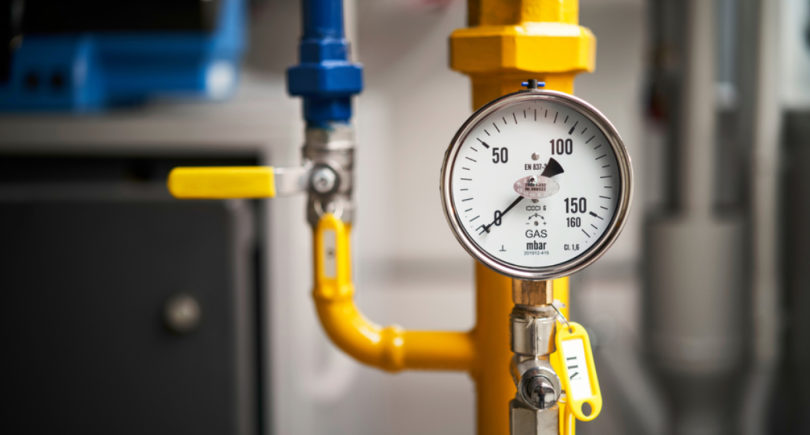
The prospects for the implementation of the "10-10-10" tax reform remain unclear – some representatives of the authorities and the IMF oppose it
The imperfection of the tax system, high tax rates and the unpredictability of the tax collection policy were among the key obstacles to the development of business in Ukraine even before the war. In the conditions of the war, when most companies significantly reduced the scope of their activities and had problems with working capital, the state tried to stimulate business activity, including through taxes. However, business underestimated the effectiveness of the state’s tax policy under wartime conditions.
Business assessments
According to the survey of the European Business Association (EBA), the tax index for 2022 has worsened to 2.97 points out of five possible compared to 3.01 points in 2021. Among the components of the index, the factor of tax administration and preparation of tax reporting received the lowest rating – 2.74 points. At the same time, the quality of tax legislation (2.86 points) and the quality of tax service (3.04 points) improved. Although the fiscal pressure assessment factor is in the neutral plane – 3.24 points, the interviewees say that it has increased somewhat compared to 2021.
Already at the very beginning of the war, the authorities canceled VAT and customs duties on all imported goods, canceled excise taxes and reduced VAT for fuel, allowed the sole traders of groups I and II not to pay a single tax, and all small entrepreneurs – not to pay SSC, and also allowed even large enterprises to pay a single tax of 2% of turnover. Thus, a simplified taxation system with payment of 2% of turnover replaced income tax (18%) and VAT (20%). Later, from July 1, import benefits were canceled, returning VAT and customs duties. Tax benefits for fuel were also partially abolished: excise taxes were returned (although their amount was reduced), but the reduced VAT rate was left.
“The company’s evaluations were affected by the blocking of tax invoices, unfounded information requests and the demand for documents. The formal approach of tax officials to the consideration of business complaints caused the need for a large number of companies to go to court. In such a difficult time, we need great flexibility of tax authorities, a realistic view of wartime conditions, liberalization of tax administration and requirements for working businesses,” said Natalia Artemchuk, manager of the tax and customs committees of the EBA.
During almost all of last year, the business had problems with VAT reimbursement. In March-July (with the exception of June) it actually stopped. The total amount of VAT refunds in 2022 was UAH 84.6 billion. At the end of the year, the problem of mass blocking of tax invoices was added. Only at the end of the year, the government expanded the features of unconditional registration of tax invoices.
According to Andrii Dligach, CEO of Advanter Group, chairman of the Council of the Coalition of Business Communities for the Modernization of Ukraine, one could call the introduction of a 2% turnover tax last year a positive thing, but it was not economically calculated, did not have a significant effect on most enterprises, significantly confused work for accountants and others.
“Judging by the reaction of businesses, many did not appreciate this innovation from the state and even criticized it. And it looks like the benefits were not taken advantage of by the most affected business – a good example of that,” noted people’s deputy of Ukraine Yaroslav Zheleznyak.
According to the State Tax Service, by November, only about 51,000 companies had switched to the 2% turnover tax, the vast majority of which are sole traders. The EBA study showed that out of 111 respondent companies, only 4% (four companies) switched to this mode. In general, due to the specified tax innovation, the state budget did not receive up to UAH 10 billion.
49% of EBA companies surveyed consider changes in tax regulation in 2022 untimely, insufficient and ineffective, while only 18% are confident that they were complete and effective.
“The tax policy of the state in 2022 was destructive, despite the attempts of individual politicians to introduce positive solutions for business. Everything was destroyed by a big systemic error – the state was looking for ways to finance itself at the expense of business. This led to the fact that corruption in the tax system remained, 160 billion UAH were collected from businesses due to overpayments of income tax, blocking of tax invoices, etc.,” emphasizes Andriy Dligach.
Tax prospects
Despite the fact that tax changes were submitted to the draft state budget every year after its registration in the parliament, the budget for 2023 does not provide for tax changes. However, the authorities are already announcing the abolition of the 2% taxation system, although this innovation was supposed to apply from 04/01/2022 until the termination or abolition of martial law.
“We will cancel it by mid-2023. It played its role, which was to bring the economy out of a state of shock in the spring-summer (of 2022),” said Danylo Hetmantsev, chairman of the Verkhovna Rada Committee on Finance, Tax and Customs Policy.
According to experts, 2023 will not bring anything good in terms of taxation for business.
“The pressure on business is even stronger than without the war. Our bureaucratic apparatus, for which collecting money for the budget is the first priority, will do everything to collect funds in any way. I am also sure that the 2% system will be abolished. However, after the launch of 20% for imports, the 2% regime has already become senseless for many,” the economic expert Danylo Monin believes.
In turn, business within the framework of the EBA survey offers the following changes in tax and related areas:
- clarification of the rules that unambiguously exempt from fines for violations committed during the period of martial law;
- simplification of tax invoices’ registration;
- minimizing the number of requests and checks;
- reduction of restrictions on the use of own currency funds, etc.
Tax “tithe”
The war became a catalyst for the discussion of tax innovations in Ukraine. In August 2022, the project of the “10-10-10” program was presented, which provides for a reduction to 10% of the key tax rates – VAT (now – 20%), on the income of individuals (18%) and on the profit of enterprises (18%). Also, the reform provides for the cancellation of SSC and tax benefits and the establishment of the military levy at the level of 3% (instead of 1.5%).
As always with the implementation of large-scale reforms, the program has supporters and opponents. The “engines” of the program include the Office of the President, the Ministry of Economy and Business Associations. Minister of Finance, Serhiy Marchenko, and Danylo Hetmantsev are clear opponents of the reform.
According to the estimates of the Ministry of Finance, the reform will cost the budget 774 billion UAH per year. At the same time, according to the calculations of the reform’s authors, under the worst-case scenario, the state budget may not receive $4-5 billion in the first and second years of the reform. However, the most likely scenario shows that from the first year there will be an increase in state budget revenues.
To implement the “10-10-10” program, you need to receive a positive review from our international partners. The IMF previously opposed such initiatives, emphasizing the balancing of budget revenues. That is why it will be very difficult to convince the Foundation, especially in the conditions of war.
It is possible that the concept and numbers in the program may undergo certain changes to “please” the IMF, up to the strengthening of business responsibility for tax evasion and the increase of a number of taxes as part of compensation for lost state budget revenues.
“I believe that the opponents of the reform will drown it in any case. But after the victory in the war, there may be a chance to launch it. When we win the war, the eyes of the citizens of Ukraine will be directed to the internal situation – and there the devastation caused by the war and unreasonable economic policies with tens of thousands of hungry controllers who are ready to finish off the remnants of any “white” business. Zelenskyi will be faced with a choice – to leave everything as it is or to offer something to the business. In general, “10-10-10″ can work better”. But, I think, there are few chances,” says Danylo Monin.
Ukraine needs to change the tax system, but it is obvious that in the conditions of war and huge dependence on international partners, it is extremely difficult to radically change something. The key department in the Ukrainian power vertical in the tax issue – the Ministry of Finance – is extremely conservative in terms of improvements for business and very active in increasing tax pressure. The rejection of a number of tax improvements in 2022 is evidence of this. In such conditions, it is difficult to count on tax improvements for business in 2023 and the appearance in the near future of the state’s systemic policy of business support through taxes.





